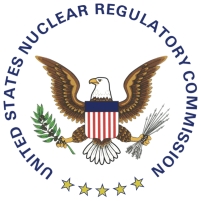The Non-Regulating Nuclear Regulatory Commission
Friday, May 13, 2011

If the United States endures a nuclear power plant disaster, the Nuclear Regulatory Commission (NRC) may have to be renamed the Nuclear Complicity Commission.
Rather than enforce safety regulations governing the operation of nuclear plants, the NRC, which has a staff of 4,000, has often allowed industry to slide on fixing problems that pose potential dangers.
An investigation published by ProPublica found the NRC has “routinely” waved fire rule violations at nearly half the nation’s 104 commercial reactors. Fires pose a serious threat to nuclear safety, as evidenced by the crisis in Japan, where explosions and fires after the tsunami crippled the control room, leaving operators unable to cool down reactors.
One of the more egregious examples of the NRC lax oversight involves the Browns Ferry Nuclear Plant in Alabama, where equipment still does not comply with fires rules—36 years after a conflagration prompted federal regulators to adopt new requirements for the industry.
At other plants, fire-safety violations include unprotected equipment, inadequate fire doors and missing alarms and sprinklers.
More than 150 fires have broken out at nuclear plants since 1995, according to NRC records.
The commission also has allowed plant operators to avoid making important non-fire-related changes. At the Byron Nuclear Generating Station, located 100 miles from Chicago, the owner, Exelon, has skipped replacing old pipes that are part of the vital cooling system. Over time, the steel in the pipes became so thin from corrosion that in 2007 workers accidentally punctured a hole in one section while cleaning it with a wire brush.
Despite these and other problems, the NRC has approved every application for a nuclear plant license renewal—63 for 63—since relicensing of old plants began in 2000.
One problem the NRC faces is that commissioners and staff members can move on to higher-paying jobs with the companies they were supposed to have been regulating. George A. Mulley Jr. a former investigator with the NRC’s inspector general’s office, told The New York Times, “The NRC is like a prep school for many of these guys, because they know they’ve got a good shot at landing much higher-paying work with the people they’re supposed to be keeping in line. They’re not going to do anything to jeopardize that.”
-Noel Brinkerhoff, David Wallechinsky
NRC Waives Enforcement of Fire Rules at Nuclear Plants (by John Sullivan, ProPublica)
Nuclear Agency Is Criticized as Too Close to Its Industry (by Tom Zeller Jr., New York Times)
- Top Stories
- Unusual News
- Where is the Money Going?
- Controversies
- U.S. and the World
- Appointments and Resignations
- Latest News
- Trump Orders ICE and Border Patrol to Kill More Protestors
- Trump Renames National Football League National Trump League
- Trump to Stop Deportations If…
- Trump Denounces World Series
- What If China Invaded the United States?






Comments